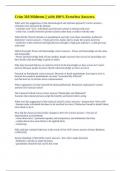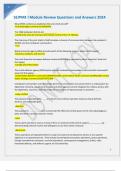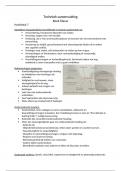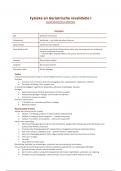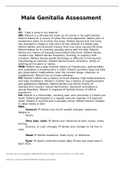Tentamen (uitwerkingen)
Crim 310 Midterm || with 100% Errorless Answers.
- Vak
- Instelling
What were the suggestions of the demonological and spiritual approach? correct answers - criminals were possessed by demons - criminals were "evil", individual acted beyond control as demons took over - crime was a conflict between private citizens rather than a conflict with the state What di...
[Meer zien]
